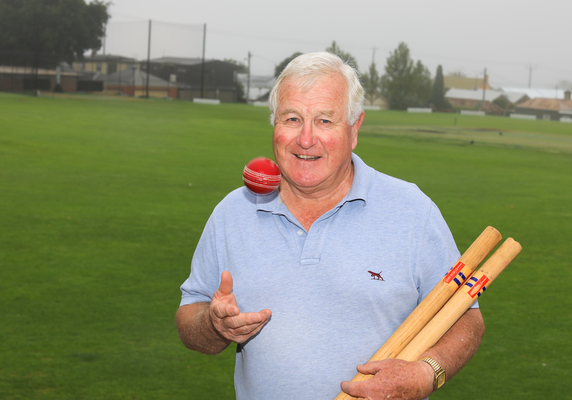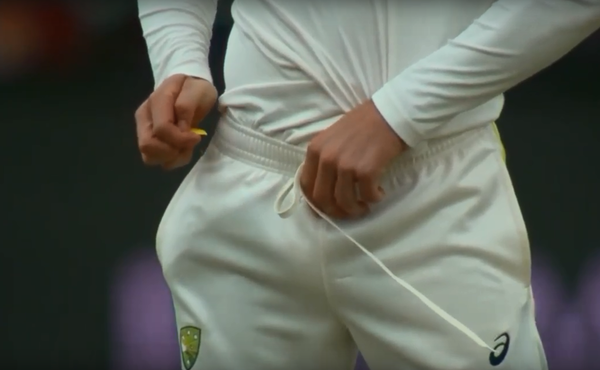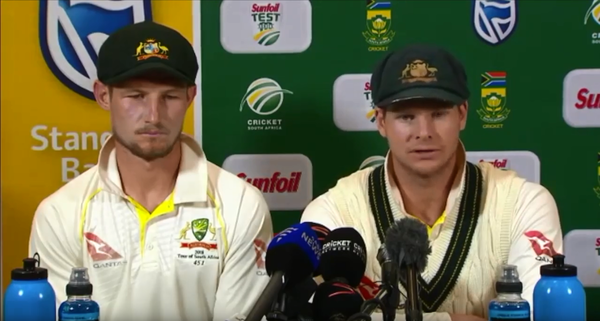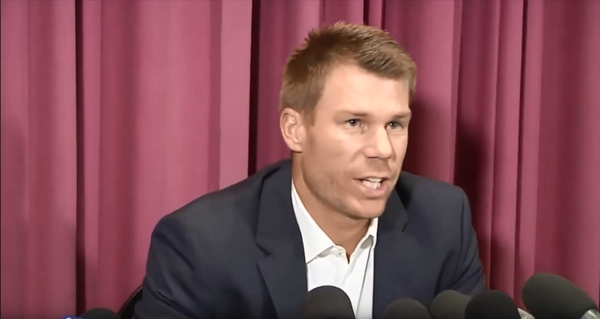Two years ago, the international cricket world was rocked by the Australian ball tampering scandal.
Grovedale’s Barry McFarlane was in Cape Town when it happened and spoke to Luke Voogt about the events of March 24, 2018.
A “wall” of cameras confronted Grovedale’s Barry McFarlane as he left a Cape Town hotel during the infamous ‘Sandpaper-gate’ in 2018.
“They weren’t looking for me,” Barry told the Independent, remembering the biggest Australian cricket scandal since Trevor Chappell’s underarm.
“There were about 100 cameras – left right and centre – all looking for the Australian players.
“I went back in and said to my wife, ‘you might get a surprise when you walk out the front’.”
The couple were touring with 40 people and staying in the Cullinan Hotel, the same accommodation as the Australian team, as the saga unfolded.
But Australia’s cricketers were nowhere to be seen after sneaking out to avoid the waiting press.
The scenes were a far cry from when Barry and his wife, Felicity joined the tour group after Australia’s convincing 118-run win in the first test in Durban.
They saw no warning signs of the ball tampering scandal that would rock the cricket world when they arrived for the second test in Port Elizabeth.
“The Aussies had won the first test and they seemed a happy group,” Barry said.
“The players were terrific. They would talk to you if you had any questions.”
Barry even chatted briefly to Australian captain Steve Smith, who was enjoying coffee with Nathan Lyon.
“I was basically saying g’day,” he said.
“You don’t like to walk up to them and start yapping because they probably get that all the time.”
The tour group followed the Australians to Cape Town for third test after they lost in Port Elizabeth.
“The first night they were there they arranged for Darren Lehman to have a talk to us,” Barry said.
But on March 24, the third day of the third test, the mayhem began with Cameron Bancroft about 130 metres from Barry’s vantage point in the stands.
“It just seemed strange… something happened and the umpires started looking at the ball,” he said.
“The next thing Bancroft started turning out his pockets. The message came and Smith came off the ground for about 20 minutes and then came back on.
“We were all sitting there going, ‘what’s going on?’”
Confusion reigned as the tour group caught snippets from a television near their seats.
A camera operator had caught Bancroft hiding a small yellow object in his trousers.
When the umpires approached him, he showed them a dark sunglasses pouch from his pocket instead.
But at a press conference at the end of the day’s play, Bancroft, accompanied by Smith, said he attempted to alter the ball using adhesive tape with grit attached.
That night at the hotel the team went into lockdown.
“I don’t think we actually saw the players again after that,” Barry said.
The tour members shook their heads in anger and disbelief as more details emerged.
“To orchestrate it like that – to talk about it at a break and then go out and do it – I couldn’t believe they would be so naïve,” Barry said.
“There’s cameras everywhere at the ground.”
The mood was somber the next morning and Barry declined to comment as reporters, bereft of Australian cricketers, approached the tour members for interviews.
“There was no point talking about it,” he said.
“Outside the ground there were kids selling sandpaper. I said, ‘no mate I’ve got a pocket full of sandpaper’.
“Every time an Australian walked onto the field they got booed all the way to the wicket.
“The next day Australia got cleaned up very quickly, I think they just didn’t want to be there.”
Cricket Australia’s investigation several days later found opening batsman David Warner had orchestrated the plan, and Bancroft admitted the yellow object was sandpaper.
Smith and Warner received 12-month bans, while Cricket Australia banned Bancroft for nine months.
“They were going to lose the third test,” Barry said. “But to actually go out and deliberately try to manipulate the cricket ball, that’s just not on.”
Luckily the McFarlanes only booked for two of the four tests, unlike some less fortunate tour members.
They went on safari and visited Victoria Falls on their first trip to South Africa.
Barry described a country divided black and white, where some lived in luxury villas surrounded by barbed wire, while others worked for “next to nothing”.
“It’s a great place to visit but I wouldn’t want to live there – there’s a lot of haves and have nots,” he said.
Lehman stepped down despite Cricket Australia clearing him of having any knowledge of the plot.
Barry met him again at a South Barwon Cricket Club function in August. According to Barry, Lehman suggested Smith could captain again after serving his penalty.
“I said, ‘you just can’t have that’,” Barry said.
“I’ve got no problem with him as a cricketer but he should never be put in a position of authority again.”
Barry, who recently received an Order of Australia Medal, played 421 senior games for St Josephs’ Cricket Club and for decades held local leadership positions in the sport.
“Now I’m just the curator,” he said.
He and Felicity have been on three Ashes tours and he said the saga would not discourage them from following the Aussies overseas again.
“We’d love to go to New Zealand.”










